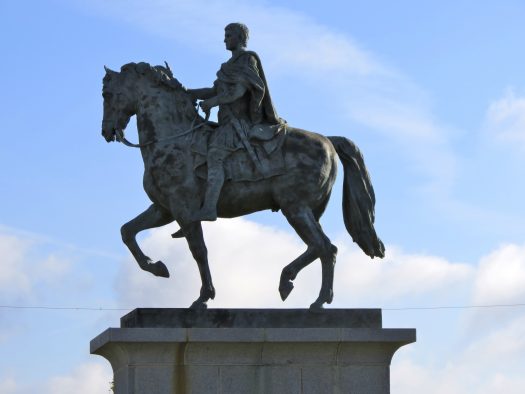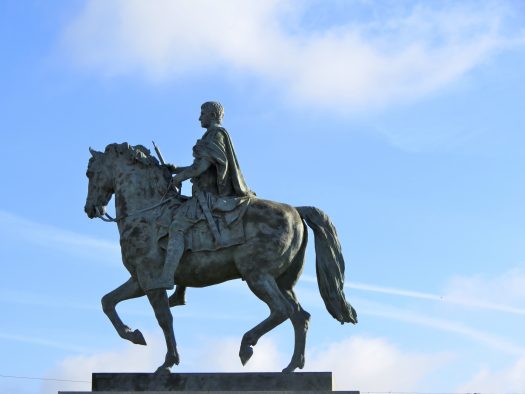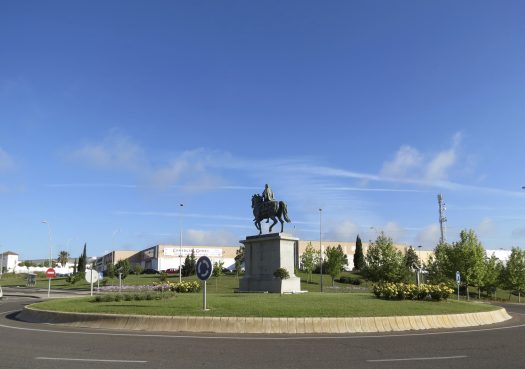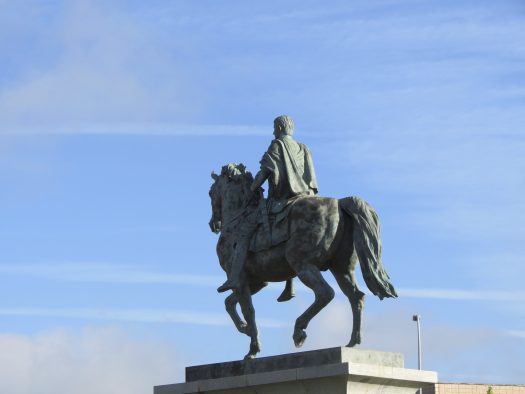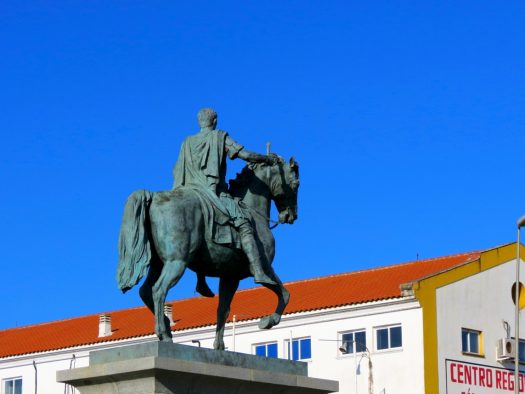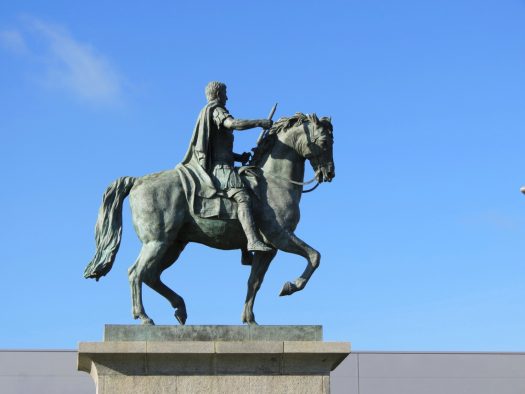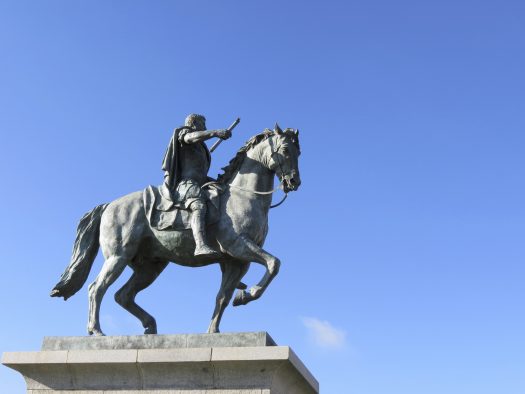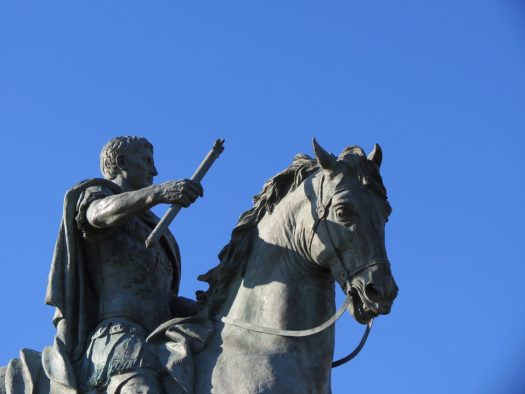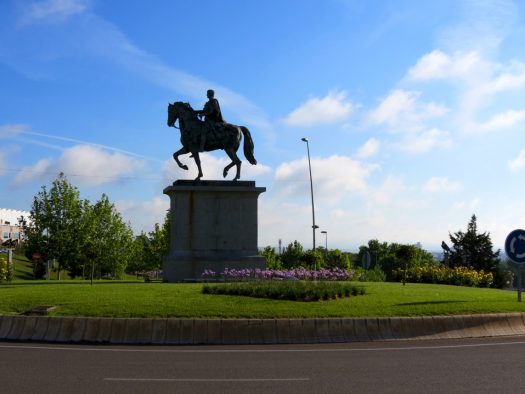- CountrySpain
- Town:Merida
-
Year of creation:2007
- Rider(s):Augustus
(63 BC –AD 14) was the first Roman emperor, reigning from 27 BC until his death. His status as the founder of the Roman Empire has consolidated an enduring legacy as one of the most effective and controversial leaders in human history. The reign of Augustus initiated an era of relative peace known as the Pax Romana. The Roman world was largely free from large-scale conflict for more than two centuries, despite continuous wars of imperial expansion on the Empire’s frontiers and the year-long civil war known as the “Year of the Four Emperors” over the imperial succession.
Augustus was born as Octavius into an old and wealthy equestrian branch of the plebeian gens Octavia. His maternal great-uncle Julius Caesar was assassinated in 44 BC, and Octavius was named in Caesar’s will as his adopted son and heir. He, Mark Antony, and Marcus Lepidus formed the Second Triumvirate to defeat the assassins of Caesar. Following their victory at the Battle of Philippi (42 BC), the Triumvirate divided the Roman Republic among themselves and ruled as de facto dictators. The Triumvirate was eventually torn apart by the competing ambitions of its members; Lepidus was exiled in 36 BC, and Antony was defeated by Octavian at the Battle of Actium in 31 BC.
After the demise of the Second Triumvirate, Augustus restored the outward façade of the free Republic, with governmental power vested in the Roman Senate, the executive magistrates, and the legislative assemblies. In reality, however, he retained his autocratic power—with the Senate granting him lifetime powers of supreme military command, tribune, and censor. Augustus rejected monarchical titles, and instead called himself Princeps Civitatis (“First Citizen”).
Augustus dramatically enlarged the Empire, annexing Egypt, Dalmatia, Pannonia, Noricum, and Raetia, expanding possessions in Africa, and completing the conquest of Hispania, but suffered a major setback in Germania. Beyond the frontiers, he secured the Empire with a buffer region of client states and made peace with the Parthian Empire through diplomacy. He reformed the Roman system of taxation, developed networks of roads with an official courier system, established a standing army, established the Praetorian Guard, created official police and fire-fighting services for Rome, and rebuilt much of the city during his reign. Augustus died in AD 14 at the age of 75, probably from natural causes. However, there were unconfirmed rumors that his wife Livia poisoned him. He was succeeded as emperor by his adopted son Tiberius (also stepson and former son-in-law).
- Sculptor(s):Zancada, Eduardo
1946 is a Spanish sculptor
-
Mérida has been populated since prehistoric times as demonstrated by a prestigious hoard of gold jewellery that was excavated from a girl’s grave in 1870. The town was founded in 25 BC, with the name of Emerita Augusta (meaning the veterans of the army of Augustus, who founded the city; the name Mérida is an evolution of this) by order of Emperor Augustus, to protect a pass and a bridge over the Guadiana river. The city became the capital of Lusitania province, and one of the most important cities in the Roman empire. Mérida preserves more important ancient Roman monuments than any other city in Spain, including a triumphal arch of the age of Trajan.
